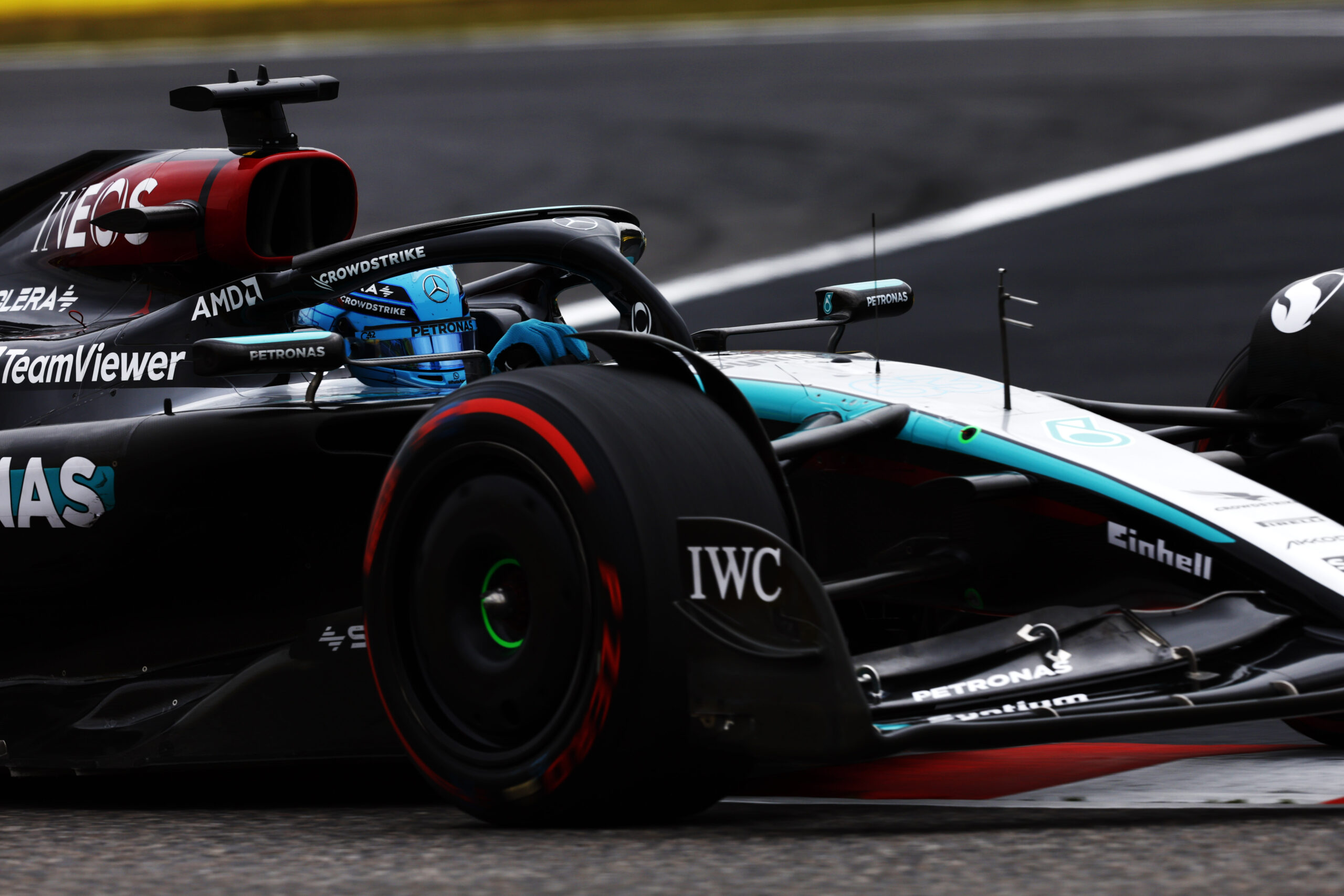Toto Wolff believes Mercedes can take positives from the data collected last weekend in Suzuka.
Mercedes only managed eight points at the Japanese GP in a generally disappointing weekend – at least in terms of the result. Lewis Hamilton and George Russell were happy with the balance after Friday’s practice. However, such comments of optimism are not uncommon from the Mercedes duo at the beginning of a race weekend. It is during qualifying and the race that the W15’s main limitations emerge.
Inconsistency and inaccurate correlation data have been recurring themes for Mercedes this season. Toto Wolff has spoken extensively about this throughout 2024.
One theory for the constant irregularity of the W15 is susceptibility to changes in track temperatures. A cooler track is understood to be an advantage for the Silver Arrows – whilst increased temperatures has a negative impact.
To understand these root issues, the team worked diligently in the build-up to this weekend. The decision was even made to bring the initial floor specification from Bahrain to establish a baseline.
Mercedes experimented in Japan
Although this failed to deliver a strong result, Toto Wolff believes the Japanese GP was invaluable for the team:
“When we went on the same sting as the others, the second and third round were really good and competitive,” Sky Sports Germany quotes him as saying.
“It’s live testing that we’re doing at the moment. The result is really bad on the table, but really good from the things learned.”
“It wasn’t the fuel, it was that we overmanaged it. The one-stop looked possible and we tried to let the tyre survive.
“The stint was so bad that we probably lost half a minute. In the second and third stints we were competitive and on the podium.
“I don’t always want to sugar coat what could have been possible because in the end it was P7 and P9. But the live experiment worked this weekend.”
Toto Wolff remains hopeful
Wolff’s positive outlook is something that he’s echoed on numerous occasions since 2022. For most of the current F1 regulations, the German constructor has been adamant about their long-term potential.
This belief was especially prevalent in pre-season, as evidenced by James Allison in pre-season. The Mercedes Technical Director seemed confident that with a new platform, the W15 could be the second-fastest team to start the year.
Evidently, this hope has not been well-founded at this stage. Looking ahead to the next few rounds, the extent to which Mercedes can find solutions to their issues will be revealed.
If a solution cannot be found, then the next eighteen months could be relatively painful for the Championship-winning team. With a new set of regulations not too far away, Mercedes might be forced to make big decisions about how many more resources they will diver to these cars.






